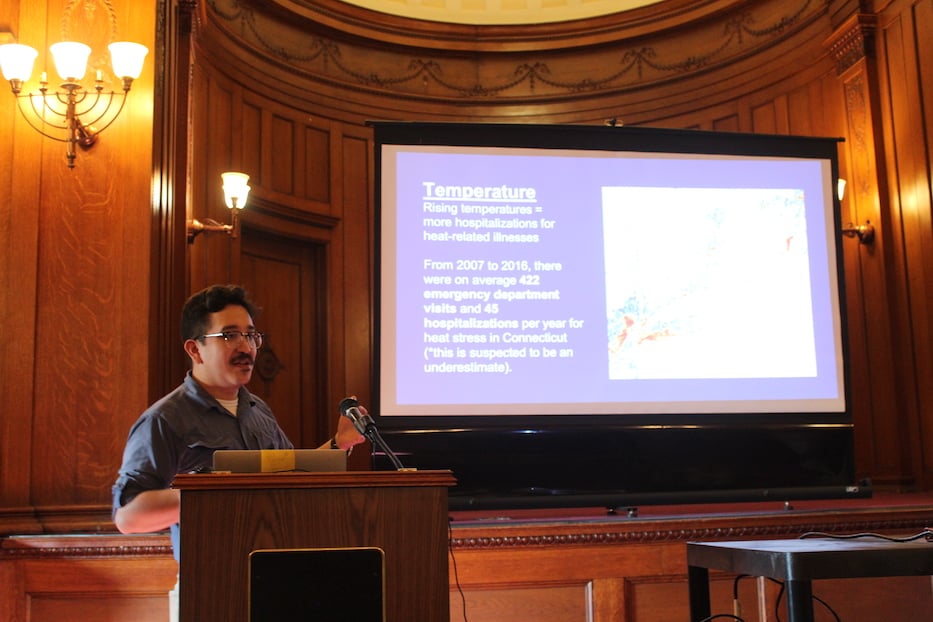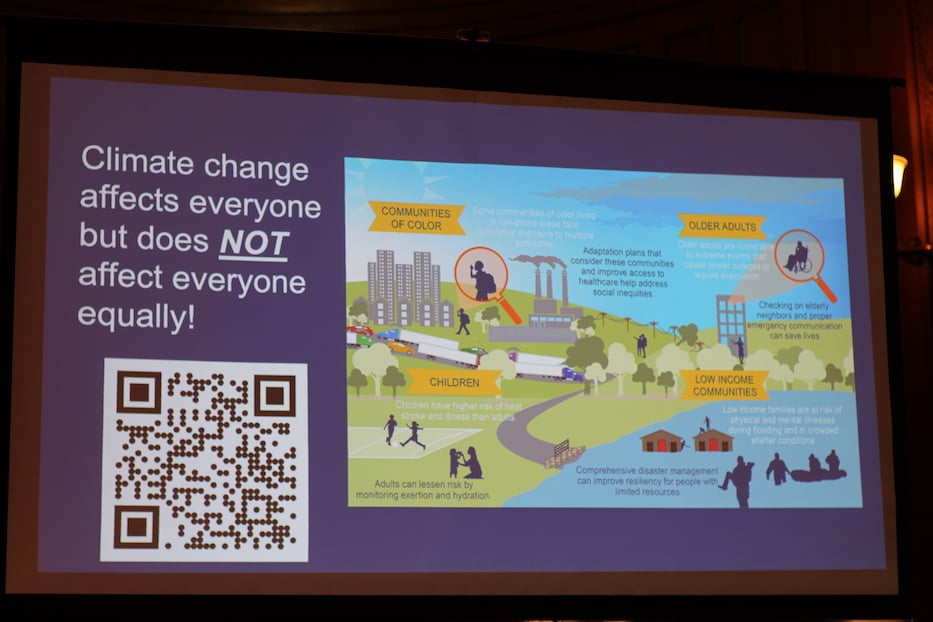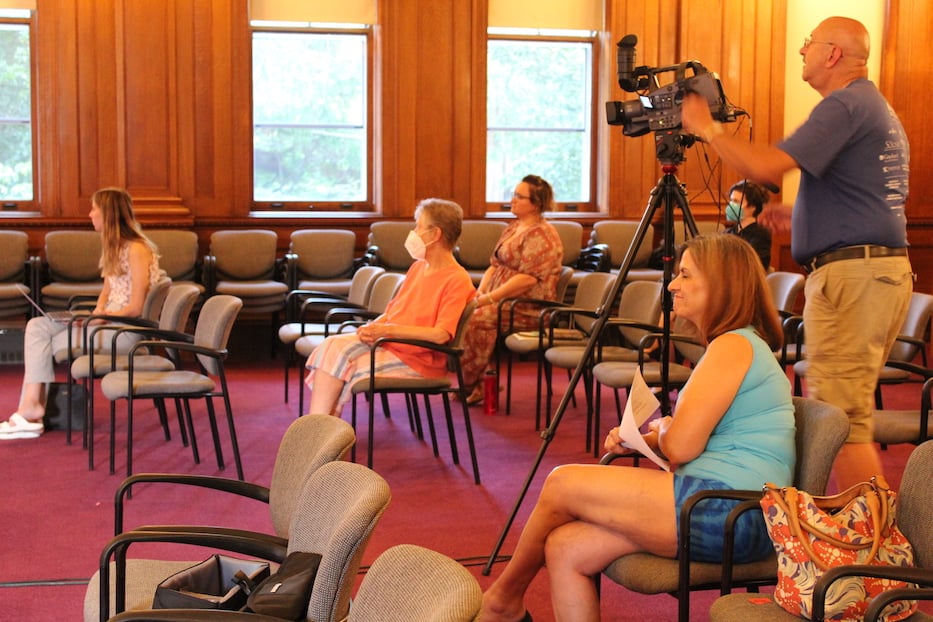
Mauro Diaz-Hernandez. Amelia Stefanovics Photos.
Do what you can with what you have. Reduce your waste with composting. Advocate for politicians who will take steps to reduce the global carbon footprint—and a local one, too.
Those were just a few of the suggestions to come out of a recent "Climate Change Community Conversation," a discussion from the East Shore District Health Department and the James Blackstone Memorial Library on how to better protect the climate at a time when the earth is rapidly warming. Speaking to a small audience, department representatives discussed how climate change affects our environment, fielded questions from attendees, and suggested how individuals can make a change.
“You’re not just a 'blank',” said Mauro Diaz-Hernandez, a program administrator at the Yale Center on Climate Change. “Everyone and anyone can help combat climate change.”
Oftentimes solutions are a collective effort, speakers said throughout the evening. Doing things alone can make an impact, but can be very hard economically.

"Driving an electric vehicle, buying solar panels, buying an electric bike … often these solutions are not attainable for the average person,” Diaz-Hernandez acknowledged. “Doing what you can with what you have is the best way.”
One way to combat climate change could help save money, he added. Composting is a very effective and clean way to fertilize and get rid of old natural scraps that are already unsuitable for eating. In the town of Branford, the Blue Earth Composting Group by the Clean Energy Commission picks up materials from residents for free.
That’s one way to keep it out of the landfill, Diaz-Hernandez said. Most Americans throw away 30 to 40 percent of the food they buy, according to the U.S. Department of Agriculture (USDA). In a given year, that amounts to Americans throwing away 40 million tons of food, according to RTS.
“Its like if you bought three full shopping bags of food and you throw one away straight into the garbage,” he said.

For some people who live in high-rise apartment and condo buildings, composting can be an issue, he added. Many towns have special local composting groups that gladly take scraps to convert into fertilizer.
“The climate change crisis cannot be solved by buying $60,000 Teslas,” Diaz-Hernandes said.
Diaz-Hernandez highlighted 95 sectors in which ordinary people can help reverse the effects of climate change. They ranged from energy conservation in homes to protecting aquaculture to advocating for new policies in the government.
Attendees of the meeting agreed, but expressed major reservations and questions that lasted beyond the presentation..
“How can we do anything if most fossil fuel consumers are global manufacturers?” Lisa Secondo asked. "Can anything we do reverse their effects?"
Although individuals cannot simply stop manufacturing, Diaz-Hernandez said, they can advocate for companies to change their practices and their carbon emissions. While some companies are based overseas—making it harder for U.S.-based regulators to control them—some of the pollution is happening right here at home.
One of the attendees noted that a number of electronics and plastics are manufactured overseas, where the process may be faster and cheaper, but also more environmentally unsafe. Others suggested looking at potential changes in the U.S. Of the 400 million tons of plastic waste globally created each year, the U.S. is responsible for over 35.7 million tons. There are documented cancer clusters linked to U.S. production of textiles and plastics.
"That does not mean we cannot do anything," said Barbara Naclerio of the East Shore District Health Department. She noted that the U.S. Congress just passed a new bill called the Chips Act, which secures funding for the manufacturing of computer chips and semiconductors in the United States.
“This way, we are able to control how computer chips are made, and what goes into them,” said Naclerio. “We should think globally, act globally.”
This piece comes to the Arts Paper through YAJI Summer Camp, an initiative of the Youth Arts Journalism Initiative (YAJI). YAJI is a program of the Arts Council of Greater New Haven. Read more about the program here or by checking out the "YAJI" tag. Amelia Stefanovics is a rising senior at Hill Regional Career High School